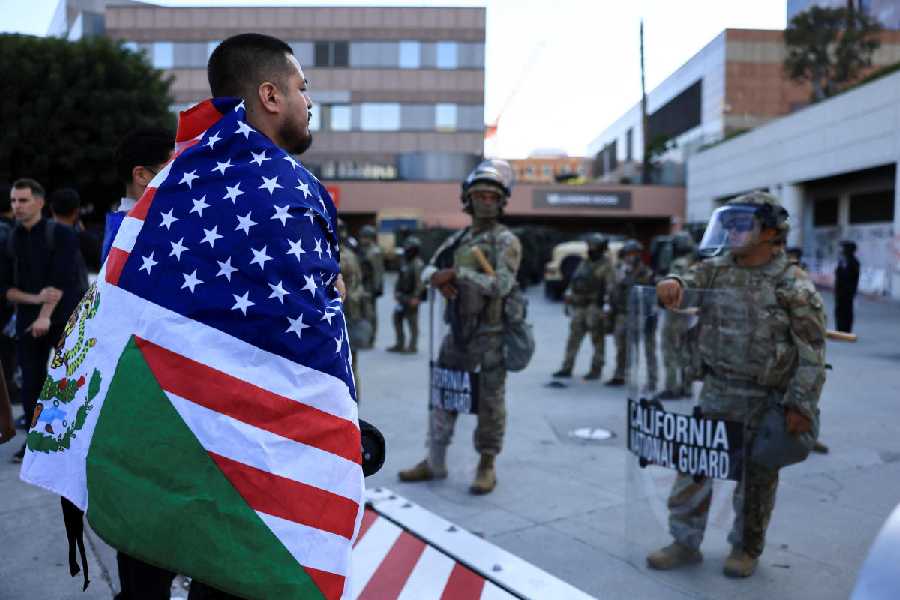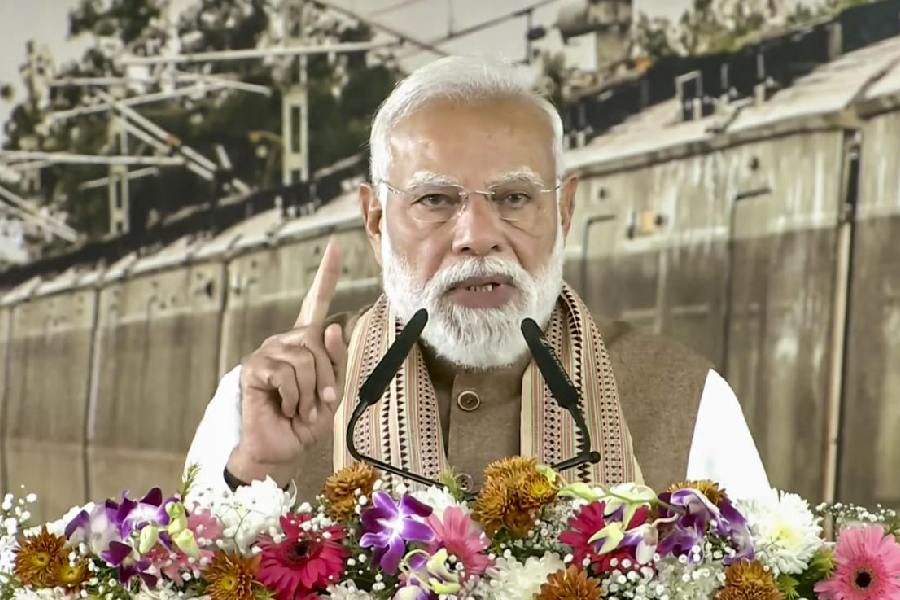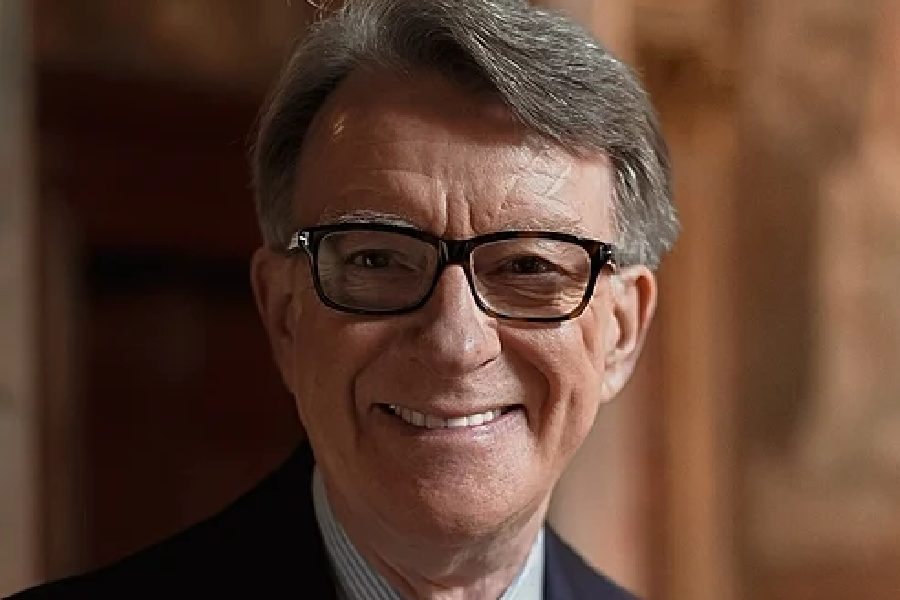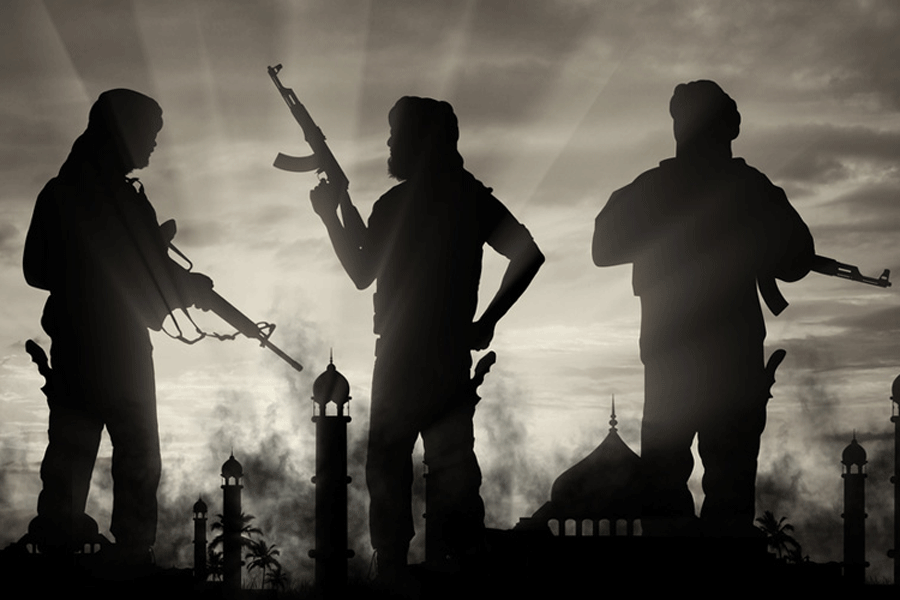Running battles between protesters and law enforcement agencies; a crackdown on demonstrators; curfew in cities; universities being challenged; students being imprisoned; and different parts of the government at odds with each other. This is not some tin-pot dictatorship in the third world. This is today’s United States of America. The last few days have seen raging fires burning on the streets of Los Angeles and, then, spreading to other major American cities with little impact on the policy response from the White House.
Donald Trump’s second-term presidency is fast emerging as a defining moment in the US’s socio-political evolution. An exemplar for the rest of the world, the US today reeks of social polarisation and political dysfunctionalities, reminiscent of the innumerable nations in the developing world to which the political pundits in Washington have usually proffered advice on governance.
Protests have been raging in Los Angeles in response to intensified Immigration and Customs Enforcement raids targeting undocumented immigrants, resulting in widespread demonstrations across the city. In response to the escalating unrest, Trump authorised the deployment of 2,000 National Guard troops and 700 Marines to Los Angeles. This move further aggravated the situation, facing strong criticism from local officials, including the California governor, Gavin Newsom, and the
Los Angeles mayor, Karen Bass, but it has been upheld by a federal judge even as protests have spread across the US.
Immigration remains a deeply divisive issue in American politics, with the Trump administration implementing a series of aggressive policies that have intensified national divisions that have the potential of fundamentally reshaping the domestic political landscape. In particular, Trump’s immigration policy has resulted in a significant expansion of enforcement measures, enhanced focus on reducing legal immigration, and laid a strong emphasis on national security. The administration has initiated large-scale deportations, with projections indicating the removal of millions of undocumented immigrants during Trump’s term. To support these initiatives, Trump also unveiled the ‘One Big Beautiful Bill Act’, a sweeping legislative proposal that commits billions of dollars to immigration enforcement, including funding for the deportation of one million individuals annually and the construction of the border wall.
The political divide is evident, with Republicans largely supporting the administration’s approach and Democrats underlining their concerns over civil liberties, human rights, and the economic implications of mass deportations. Newsom has described the troop deployment as a “deranged fantasy of a dictatorial President”. The White House deputy chief of staff, Stephen Miller, has repeatedly said that the White House hopes that ICE can scale up to 3,000 arrests a day, up from 660 or so during the first 100 days of Trump’s presidency. This is important for Trump’s MAGA base as it allows the president to be seen as serious in tackling a major problem with all the power at his disposal.
The protests against ICE efforts in California seem to have given Trump an opening to follow through on his promise during his presidential campaign that he was not going to tolerate left-wing lawlessness on American streets and would use the full force of his presidential powers in response. Trump has polled well on law and order and aggressive immigration enforcement, mobilising his core base and also bringing in political independents concerned about public safety.
Political polarisation is widening in the US, with the Republicans and the Democrats moving further from the centre. The rise of Trump itself is a manifestation of this growing divide. This shift is evident in the US Congress where members’ ideologies have become more extreme over the past few decades, resulting in diminished bipartisan cooperation. Consensus eludes critical issues, such as healthcare, immigration, and climate change, resulting in legislative gridlock, where significant policy initiatives struggle to pass through a divided Congress. This dysfunction has further eroded public trust in democratic institutions.
This polarisation is also reflected in educational attainment. Democrats have become more aligned with college-educated individuals while Republicans increasingly represent voters without college degrees. This is shaping starkly opposing attitudes toward expertise and authority: democrats tend to place trust in credentialed experts, while Republicans often express scepticism toward institutions such as universities and the media.
The US is passing through a difficult phase, with some arguing that the decline of the nation might be irreversible. But America has a great tendency of rediscovering its core strengths again and again. The French political scientist, Alexis de Tocqueville, has observed that “The “greatness of America lies not in being more enlightened than any other nation, but rather in her ability to repair her faults.” It remains to be seen if Trump’s America is ready for another such turnaround.
Harsh V. Pant is Professor of International Relations, King's College London










